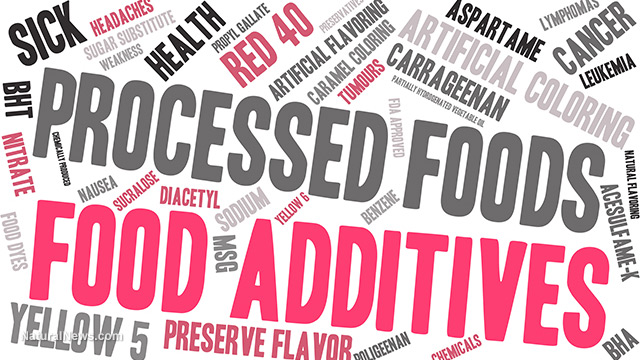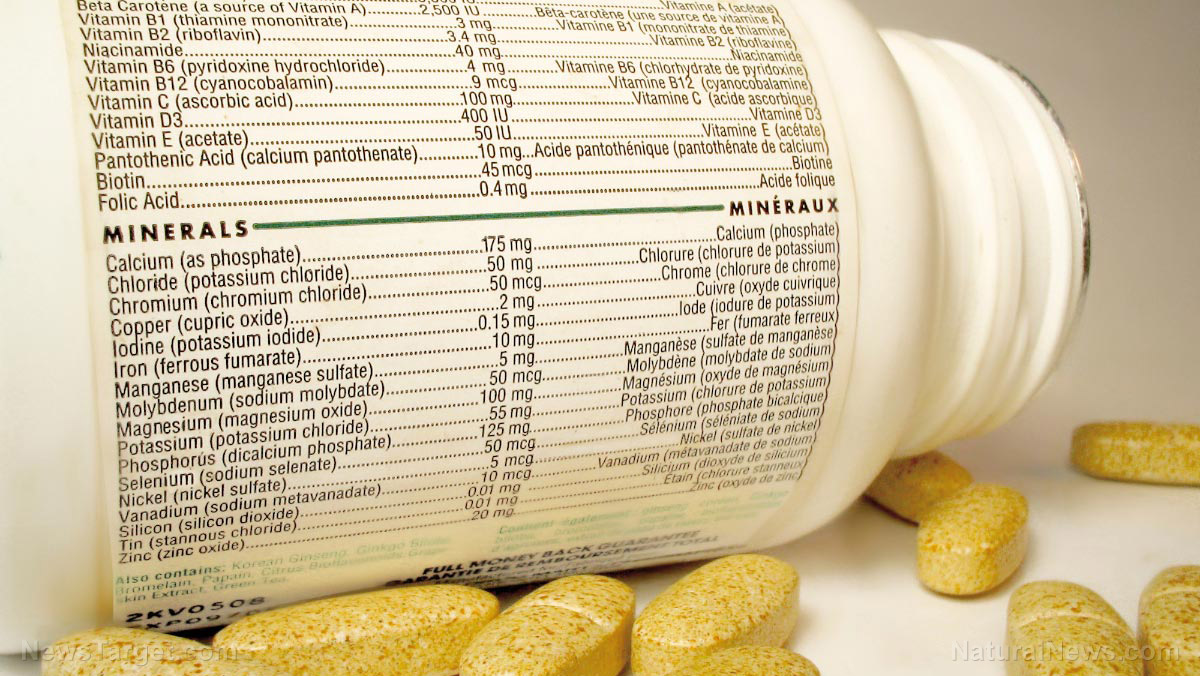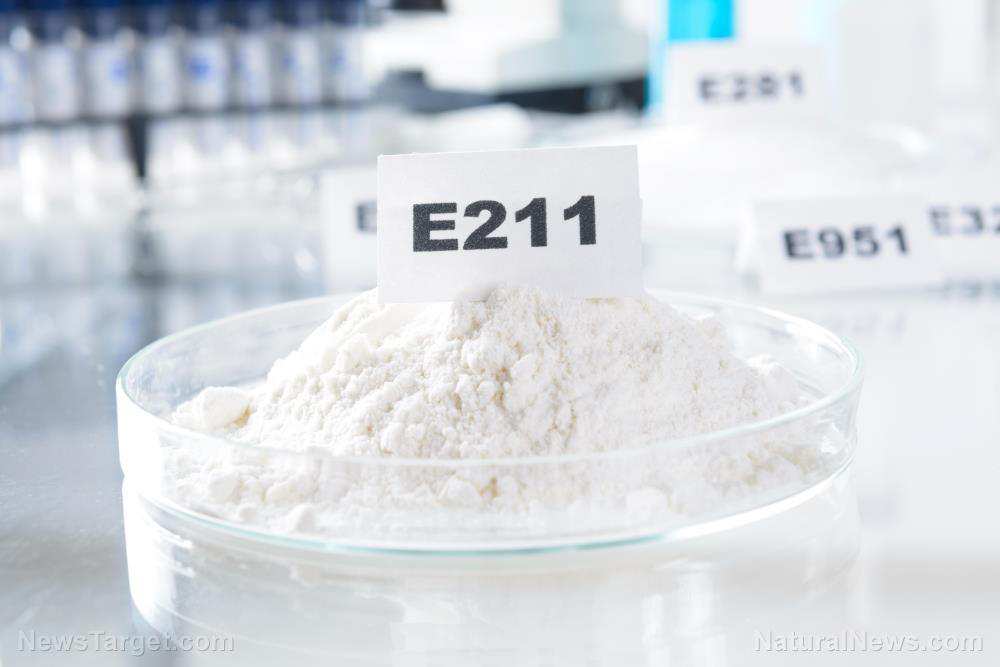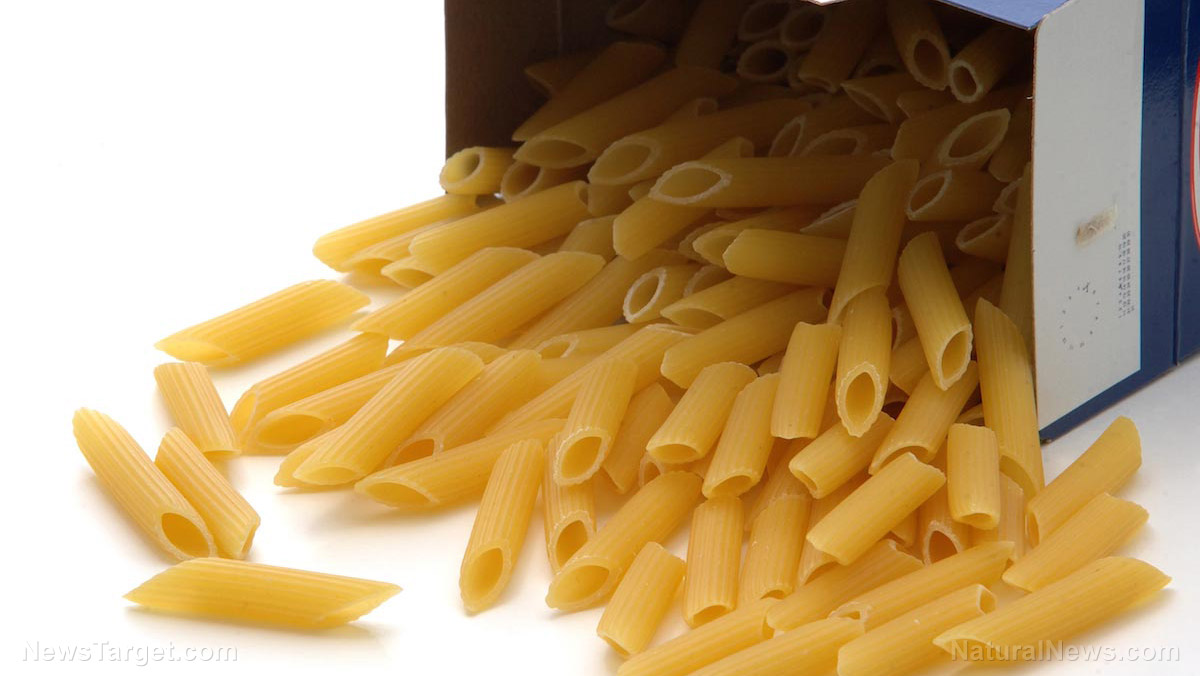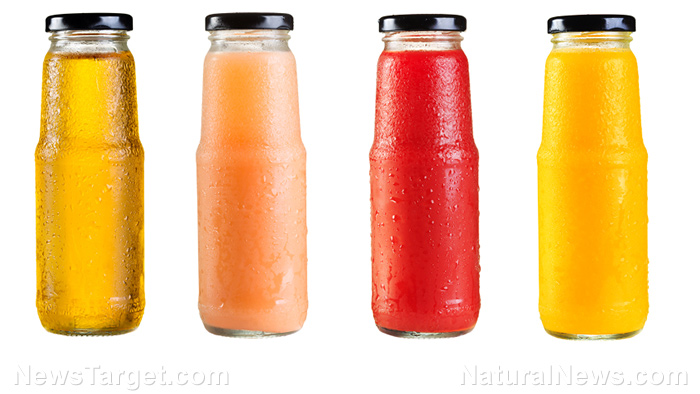Aldi recalls ice cream because of an undeclared allergen
10/17/2025 / By Olivia Cook

- Aldi’s Gianni’s Cheeky Monkey Ice Cream was pulled after wheat – an undeclared allergen – was found inside. It’s a small labeling slip that could mean life or death for someone with celiac disease or a wheat allergy.
- Celiac disease, wheat allergy and non-celiac gluten sensitivity sound similar, but they affect the body in completely different ways. Knowing which one you might have can change how you shop, cook and eat.
- Even foods that look safe – like ice cream, sauces or soups – can harbor wheat proteins under names like malt, semolina or “natural flavorings.” Reading the label once isn’t enough, experts warn.
- Labeling laws exist, but undeclared allergens are still the top reason for food recalls. Even a crumb of wheat can trigger an autoimmune storm or anaphylaxis in sensitive people.
- Doctors stress that people with any wheat-related disorder should double-check ingredients, log symptoms and talk with their healthcare provider before self-diagnosing – or swearing off entire food groups.
A labeling slip in a popular dessert reveals how undeclared ingredients can threaten people with food allergies or celiac disease – and why awareness still matters more than ever.
Aldi’s Gianni’s Cheeky Monkey Ice Cream – a freezer-aisle favorite – was pulled from shelves in October 2025 after the supermarket discovered wheat in the recipe that never made it onto the label. For most shoppers, it was an inconvenience. For someone with a wheat allergy or celiac disease, it could have been a medical emergency.
According to the U.K.’s Food Standards Agency (FSA), the product posed “a possible health risk for anyone with celiac disease and/or intolerance to wheat.” In plainer terms, a single spoonful could cause anything from intestinal inflammation to anaphylaxis – the kind of reaction that sends blood pressure plummeting and airways closing within minutes.
Aldi apologized, issued a full refund notice and the product vanished from stores.
When wheat becomes the enemy
For millions, wheat is a trigger. But not all wheat-related reactions are the same, according to a 2025 review in Seminars in Immunology.
- Wheat allergy: This is a classic allergy – the body mistakes certain wheat proteins for a threat and unleashes IgE (immunoglobulin E) antibodies. Symptoms can appear within minutes: hives, swelling, vomiting, wheezing. In severe cases, the reaction spirals into anaphylaxis, a life-threatening emergency that requires immediate epinephrine. As Medical News Today (2024) notes, even a crumb of exposure can be enough.
- Celiac disease: Celiac is not an allergy at all – it’s an autoimmune disorder. When people with celiac eat gluten (a protein in wheat, rye and barley), their immune system attacks the small intestine. Over time, that self-destruction can lead to nutrient loss, nerve damage, infertility, bone weakness and other chronic issues. The Seminars in Immunology 2025 review estimates it affects about one in 100 people, though many remain undiagnosed for years, chalking up symptoms to stress or a “sensitive stomach.”
- Non-celiac wheat (gluten) sensitivity: Then, there’s the in-between category: people who feel bloated, foggy or achy after eating wheat but test negative for celiac and allergy. Researchers call it non-celiac wheat sensitivity (NCWS). Its cause is unclear – possibly other wheat proteins (27 potentially allergenic components in wheat have been identified to date) or certain carbohydrates – but for sufferers, the misery is real.
Each condition demands a different approach. A wheat-allergic person might risk anaphylaxis from a trace amount; someone with celiac disease faces long-term intestinal injury from even hidden gluten; those with NCWS may need a tailored diet to stay comfortable. That’s why doctors urge testing before anyone swears off gluten on their own. Guessing wrong can be dangerous – and makes diagnosis harder later.
The trouble with “undeclared allergen”
In the Aldi ice cream recall case, the word “wheat” was simply missing from the label. Regulators call that an “undeclared allergen” and it’s the number one reason for food recalls.
Unlike spoilage, you can’t smell or see an undeclared allergen. You trust the label to warn you. When it fails, there’s no defense.
Mistakes happen for many reasons: cross-contact in shared equipment, mislabeled batches or recipe changes not communicated to packaging teams. Even with modern tracking, human error still slips through – and those slips can be deadly.
For consumers who live with severe allergies, a recall like this is not just an isolated event. It is a reminder that vigilance can never relax, not even for a scoop of ice cream.
“Aldi’s ice cream recall will soon fade from headlines, replaced by the next recall or food safety alert. But its lesson endures. Trust in food labeling is a fragile contract between manufacturers and consumers. When it breaks, the consequences can be immediate and deeply personal,” said BrightU.AI‘s Enoch.
Learn more about causes, signs and symptoms of wheat allergy by watching this video.
This video is from the Daily Videos channel on Brighteon.com.
Sources include:
Submit a correction >>
Tagged Under:
Aldi, celiac disease, clean food watch, dangerous, food labels, food safety, food science, food supply, gluten intolerance, grocery, ingredients, non-celiac wheat sensitivity, products, stop eating poison, Wheat allergy, wheat proteins
This article may contain statements that reflect the opinion of the author
RECENT NEWS & ARTICLES
COPYRIGHT © 2017 GROCERY NEWS






